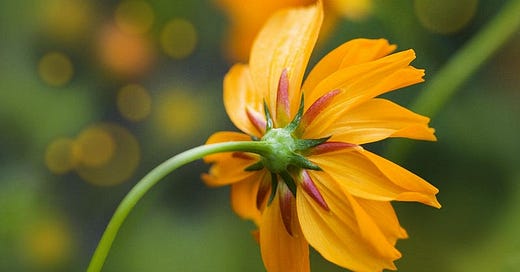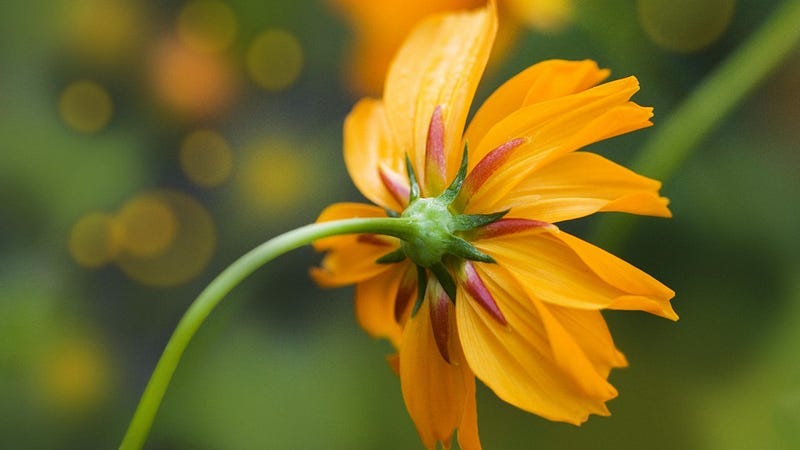by Valerie Moselle
Sustainability is the buzzword of the day it seems. We use it to refer to the environmental needs of our planet for obvious reasons. But more and more this word has become prevalent as a precept for self-care. Santa Cruz, California, the city I call home, has long held a culture of mind-body stewardship, and the holistic center I founded there is always busier this time of year as renewed commitments to health and wellbeing bring more people in through our doors. But personal sustainability sentiments can be found in gas stations, grocery stores, airports, corporate offices and even public schools. They are everywhere now, and in every kind of community. I wonder: Is the prevalence of the message a sign of an emerging awareness of the importance of better personal sustainability strategies? Or is the prevalence of the message a symptom of economic, political and cultural choices that cause us such distress that intentional self-care is now non-optional.
Canadian yoga blogger and author Matthew Remski asks whether our infatuation with self-care in the US may have something to do with a lack of reliable and universally accessible healthcare in our country. The subtext of privatized care is that your health is your own responsibility. Because we cannot rely on governmental resources, the onus is on us to hack our own wellness. The very set-up may be responsible for propelling us towards alternative measures to stave off the major illnesses that would otherwise drive us into the healthcare system. It should not be missed that because most of those alternative measures also cost money, our personal health then is a pursuit of the financially privileged, rather than a right that everyone has.
Another perspective on why we have become so attentive to self-care is that our day-to-day experience is one of complex relationships and responsibilities in which we find ourselves feeling chronically anxious and overwhelmed, rather that vital and fulfilled.
My own life is no exception.
As I sit to write this our nation may very well be in the beginning stages of war with Iran. The environment is changing visibly and rapidly. My relationship is in need of conscious tending, and my business requires ongoing vigilance. My children are suffering from their individual challenges, some of which are symptoms of being raised in a ‘self-care’ culture that glorifies health and wellbeing. In each of these areas of my life, and in any given moment in time, there are things I ‘should’ be doing and am not, and things I would rather be doing and am not. For some this would be immobilizing. My disposition leans towards another error.
My go-to is to swing at the problem, knocking one challenge, obstacle or simple ‘to do’ out of the park after another. Behind all that strength, endurance, and spirit is a mistaken belief that I should be hitting all the balls. I am very productive. Yes. And it feels good. But my productivity is motivated by the idea that if I just hit the next few pitches coming my way I will soon be able to sit down on the bench for a while. Except… the balls just keep coming. And here’s the kicker: My self-care has become yet another ball . It seems I am waiting for some other kind of pause that will never come, and I am experiencing a constant, low-grade sense of disappointment and frustration at the dissonance between my unrealistic expectation and my reality.
Mine is not the only strategy, but it is one that no doubt some of you share. No amount of self-care is going to change our mistaken assumptions. However, enough self-care might enable us to continue overextending ourselves. Might self-care strategies simply be band-aids we are applying to the looming problem of the complexity of our lives? Will self-care regimens correct the fact that 1 in 3 adults have taken antidepressants in the last month in the US? Or that according to the World Health Organization, Depression is the number one cause of global disability? Maybe. But maybe not. Don’t get me wrong; self-care is important. But the problem may be more complex than we think, and we may need to address it from multiple angles.
Are we engaging with self-care as a coping mechanism for lifestyles that are beyond our capacity to sustainably manage?
The self-care lore of today teaches me that I have a limited pool of inner resources that I am slowly draining, and that to recover my sense of ease and ability to ‘roll with life’ I need to regularly replenish these resources in order to sustain. The disconnect in this narrative for me is that I personally have more support in the form of outside help, financial resources, therapy, bodywork, access to nature, and personal self-help skills than probably most. Yet I still seem to feel at a loss. Am I just doing it wrong?
I am starting to play with an alternative metaphor. What if we let go of the idea of self-care as a way to replenish limited resources — moving away from the ‘fill your well’ mindset — and explore the idea that the role of self-care is to ‘open the channel’ to the wellspring of energy that already exists within us and all around us. Am I a battery that needs to be ‘recharged’? Or am I more of a conduit for energy and effort that can be expressed in a variety of ways?
A friend recently shared the beautiful story of Claire with me. Claire reminds us that there is no need to wait for a more optimal time or circumstance to do the good work we can do in the world. We have access to all that we need right now; and we’ve always had it. We only have to choose where we want to put the energy that enlivens us.
To live this way — as a conduit of creative energy — would require a major shift in my particular mindset, but only a minor shift in my self-care regime. Here is what I’m working on. Perhaps you will join me:
Remember to engage with only one thing at a time AND one moment in time.
Getting anxious about the next challenge life is going to lob my way, or regretting how I handled the last one is a choice. I can’t change the past. I can’t predict the future. What I have in front of me is all there really is, and this is where I can creatively engage. Realizing this gives me permission to let some of the balls go, make mistakes, and actively choose where and how to direct my energy. What this actually looks like in my day-to-day could be less bemoaning that I have to pack lunches for my children when I’m tired and would rather be resting, and instead packing the lunches because that is what is in front of me. Later I will rest. My other option is to not pack the lunches.
Completely accept that the world will continue to move and change.
This is so hard. I must constantly remind myself that I am not in control. I am not in charge. I can only engage with what is in front of me as gracefully as possible, and let go of any ideas I have about the outcome. This helps me steer away from some of the ever self-diminishing ‘shoulds’. Thoughts that start with ‘I should be’, ‘I should have’, or ‘I should have done’ are exhausting. They do not open me to a more playful experience of the unpredictable nature of life, or to becoming a better conduit of the life force that propels me into action every day. Boy is this one even harder if you have kids. What this actually looks like in my day-to-day could be allowing others to make their own choices and have their own feelings without taking them on as my own or trying to ‘fix’ any given moment. The moment is what it is.
Take time for integration — not restoration — but integration.
Here is where we hack the self-care model. The thought ‘I need rest…I need to get off this moving train and take a break,’ is reactive. The world is not going to stop turning, and no amount of time off (though important for other reasons) is going to change the way I engage with the intensity of my life when I return. Of course I need to take time away. And yes, I require rest. But the idea of ‘getting off the train’ or ‘stepping out of the rat race’ is a false construct. My problem is not who I am when I’m on vacation. It’s who I am in my regular, every-day life.
Integration is the process of digesting the challenging events of our daily lives by returning again and again to a mental and physical state where we have access to our inner resources.
We recover access to our inner resources during sleep, contemplation, gentle exercise, welcome touch, creative expression, sharing our experience(s) in conversation with another, and meditation. Many of these activities are also restful. But not all restful activities support integration. What this actually looks like in my day-to-day could be actively noticing when I’m engaging in an activity that supports integration, consciously nurturing the process and savoring the results.
Just so you know, my shadow self is chuckling in the background, ‘Ha! You’re one to talk!’
The world is calling us. There is much to do, and we need to answer the call. How do we comfortably increase our capacity to consciously engage? As I tug on the thread of the concept of personal self-care and sustainability as part of the equation I’m wondering if, rather than re-committing actions to that support our goals and aspirations as so many of us do this time of year, our time would be better spent committing to quietly bathing in our reserves and dwelling in activities that support reconnecting (opening the channel) to the inner resources we already have.
If we take this strategy to task, then self-care and sustainability are less about ‘showing up’ for self-care modalities in order to recover from the demands of our lives, and more about engaging in activities that remind us of, and reconnect us to, ourselves. Consider the possibility that your inner resources are an asset that can be ‘streamed’ rather than ‘consumed’.
During the moments you take to yourself, visualize a wellspring of current that can be ‘opened to’ rather than ‘pulled from’.
The distinction is subtle, but profound. If we succeed, we may finally be able to let go of the anxiety that comes from the mistaken belief that we are never enough, and finally embrace our role as stewards of our own energy by consciously and intentionally refining the direction and focus of what spontaneously emerges from our own tender, beautiful, and unique expression of the life and liveliness within us.
(if you’d like to sign up for my personal newsletter, please do so here. I can be found on IG and FB at @valeriemoselle)
Originally published at https://lumayoga.com on January 14, 2020.






